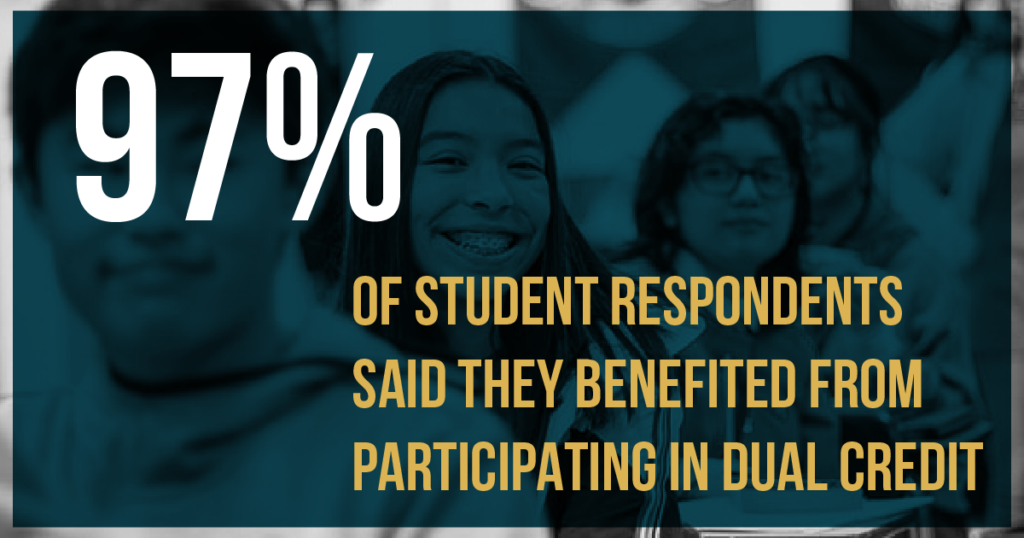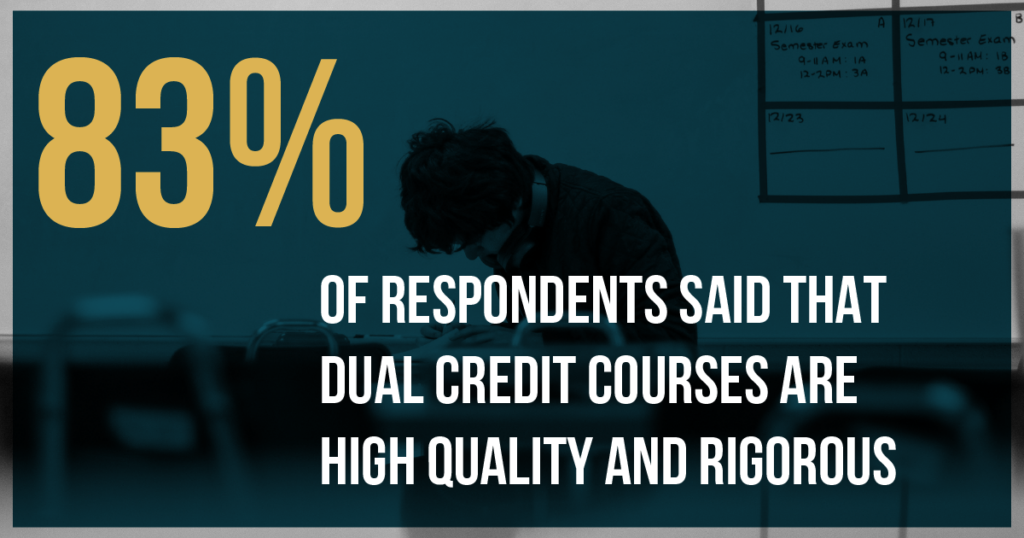Dual Credit
Inequity in Illinois’ education system runs deep. Where some high schools offer abundant opportunities to earn college credit in high school at little cost to their families, others have paltry dual credit course offerings, some of which come with a hefty price tag.

These Dual Credit course inequities often go unnoticed.
There are real barriers to equitable access to advanced courses. Dual Credit licensure rules have changed recently in an effort to enable more teachers to meet the rigorous qualifications, but in an era of severe educator shortages, underfunded school districts across the state struggle to recruit and retain teachers to teach advanced coursework and counselors to thoughtfully guide students toward their best curricular options.
A new law signed by Governor Pritzker, HB5506 (Stuart), revises the Dual Credit Quality Act to boost the Dual Credit teacher pipeline through secondary and post-secondary partnerships, pave the way for Career and Technical Education (CTE) teachers to benefit from those partnerships, and allow mixed enrollment classrooms granting districts more flexibility. Working together with our partner organizations, we surveyed students, parents, educators, administrators, and professionals in the secondary and postsecondary fields to get their thoughts on Dual Credit programs. Over 1,000 individuals responded, giving us clear insight into the opinions of folks directly involved with Dual Credit. We learned a lot, and that information will help inform our advocacy for better policies going forward.


Hear these and other Dual Credit student success stories on our YouTube playlist
Get the full details in the survey briefs:
- Advantages of Dual Credit
- Expanding Equitable Access to Dual Credit
- Maintaining Dual Credit Rigor & High-Quality Delivery
What do Dual Credit opportunities look like at your school?
If you want to bring Dual Credit courses to your school, be sure to check out our Dual Credit Advocacy Toolkit. This interactive website guides users through the process of establishing Dual Credit programs and exploring teacher credentialing requirements for dual credit courses. The site can also be used as a navigation tool to find relevant documents and resources related to dual credit. Parents, teachers, administrators, and community members can access the toolkit by visiting standadvocacytoolkit.org.
The Higher Learning comission Policy Proposal
The Higher Learning Commission, the accrediting body for Illinois colleges and universities, has proposed a policy change that will have a big impact on dual credit in Illinois, allowing greater flexibility for faculty credentials to teach dual credit which can help schools expand dual credit courses amidst the ongoing teacher shortage. The proposed rules maintain that institutions of high learning will continue to review and approve faculty credentials, but it opens the door to recognizing equivalent experience and progress towards full credentials. You can read the full policy change here.
As proponents of equitable, high-quality dual credit expansion, Stand for Children Illinois applauds these proposed changes as a smart way to maintain rigor while paving the way for new instructors to earn credentials to teach dual credit. You can read the letter of support we submitted to the HLC below.
The HLC will vote on the policy proposal at the November board meeting. If you would like to stay in the loop, sign up for updates here.
Other Dual Credit resources:
Expanding Equity in Dual Credit interactive report, featuring case studies from across the state highlighting actionable, district-level recommendations for educators, by educators.



